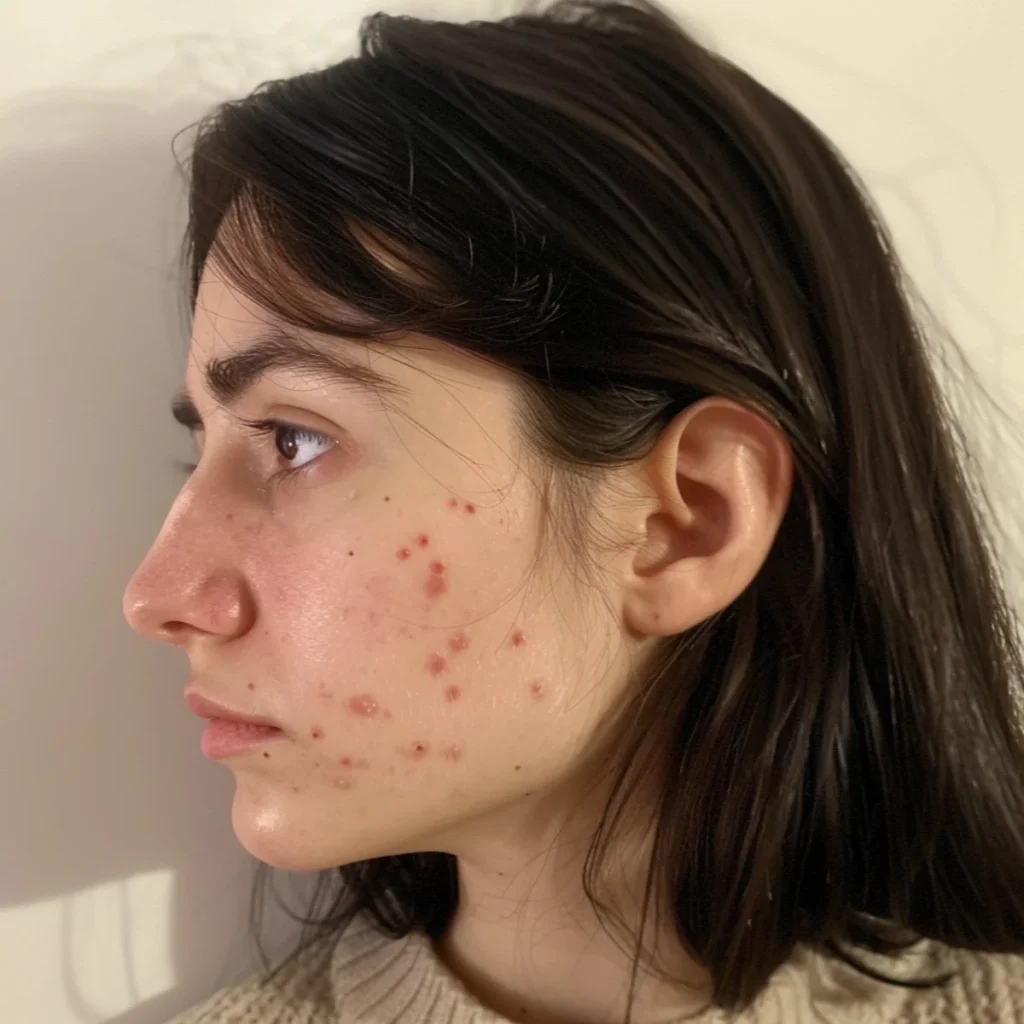Dealing with acne? Unsure if it’s time to consult a dermatologist? Contact us today for a free consultation.
Acne is one of the most common skin conditions, affecting millions worldwide. While many cases can be managed with over-the-counter products and good skincare habits, there are times when acne requires professional intervention. So, when should you see a dermatologist for acne?
Are you struggling with acne and unsure of the next steps? Our team of board-certified dermatologists is here to help. Whether you’re dealing with persistent breakouts, severe cystic acne, or concerns about acne scars, we offer personalized treatment plans tailored to your unique needs.

Understanding Acne
Acne occurs when hair follicles become clogged with oil (sebum) and dead skin cells. This can lead to various types of blemishes, including:
- Blackheads and Whiteheads: Non-inflammatory forms of acne.
- Papules and Pustules: Inflamed bumps and pimples that may contain pus.
- Nodules and Cysts: Deep, painful acne lesions that are more severe.
Acne can occur at any age but is most common during adolescence due to hormonal changes. However, adult acne is also prevalent, especially in women.
When to See a Dermatologist for Acne
While mild acne can often be treated at home, sure signs indicate that professional help is needed. Here’s when you should see a dermatologist:
- When Over-the-Counter Products Aren’t Working
- If you’ve been using over-the-counter acne products for several weeks without improvement, it may be time to consult a dermatologist. Persistent acne can indicate underlying issues that require prescription treatments, such as retinoids or oral medications.
- When Acne is Severe or Painful
- Severe acne, such as nodules or cysts, is often painful and can lead to scarring. A dermatologist can provide effective treatments like cortisone injections or isotretinoin to reduce inflammation and prevent permanent damage.
- When Acne is Causing Scars
- Acne that leaves behind scars, such as pitted or raised marks, should be addressed promptly. A dermatologist can recommend treatments like chemical peels, laser therapy, or microneedling to minimize scarring and improve skin texture.
- When Acne is Affecting Your Mental Health
- Acne can take a toll on self-esteem and mental well-being, leading to anxiety, depression, or social withdrawal. If acne impacts your quality of life, seeking help from a dermatologist can improve your skin and confidence.
- When Other Symptoms accompany Acne
- In some cases, acne can be a symptom of an underlying medical condition, such as:
- Polycystic Ovary Syndrome (PCOS): Often accompanied by hormonal acne, irregular periods, and excessive hair growth.
- Rosacea: Can mimic acne with red bumps and pustules.
- Folliculitis: An infection of hair follicles that may resemble acne.
- In some cases, acne can be a symptom of an underlying medical condition, such as:
How Dermatologists Treat Acne
Dermatologists have access to advanced treatments that go beyond what’s available over the counter. Depending on the severity and type of acne, they may recommend:
Topical Treatments
- Prescription Retinoids include tretinoin or adapalene to unclog pores and reduce inflammation.
- Consult your doctor before using these medications to ensure they suit your skin type.
- Antibiotics: To reduce bacteria and inflammation.
- Always consult with your doctor to confirm the correct dosage and duration of use.
- Azelaic Acid: An anti-inflammatory agent that also lightens dark spots.
- Discuss its use with your doctor to avoid potential side effects.
- Benzoyl Peroxide: Available in prescription strengths to kill acne-causing bacteria.
- Ask your doctor about appropriate concentrations for your skin condition.

Oral Medications
- Antibiotics: Such as doxycycline or minocycline to target bacterial infection in moderate to severe acne.
- Before starting any oral antibiotic, consult your doctor to manage potential side effects or interactions.
- Hormonal Therapy: Birth control pills or spironolactone can regulate hormonal imbalances that contribute to acne.
- Always consult with your doctor, especially if you have underlying health conditions or are planning to become pregnant.
- Isotretinoin (Accutane): A powerful treatment for severe acne that doesn’t respond to other therapies.
- Isotretinoin requires close monitoring by your doctor due to its potential side effects and risks.
In-Office Procedures
- Chemical Peels: Help exfoliate the skin and unclog pores.
- Discuss this treatment with your dermatologist to ensure it’s right for your skin type.
- Corticosteroid Injections: Reduce inflammation and pain in cystic acne lesions.
- In-office treatments should only be performed by a licensed dermatologist to avoid complications.
- Laser and Light Therapy: Target acne-causing bacteria and reduce redness.
- Consult your dermatologist for the most effective type of therapy for your condition.
- Extraction: Safely remove blackheads or whiteheads without causing damage.
- Professional extractions should only be done by a trained professional to avoid scarring.
Scar Treatments
If acne has already caused scars, dermatologists can offer treatments like:
- Microneedling: Promotes collagen production to improve skin texture.
- Laser Resurfacing: Reduces the appearance of scars and evens out skin tone.
- Dermal Fillers: Temporarily fill in depressed acne scars.
Why Early Intervention is Key
Treating acne early can prevent it from worsening and reduce the risk of permanent scarring. Delaying treatment often leads to more severe cases that are harder to manage. A dermatologist can create a personalized treatment plan that addresses your needs and skin type, ensuring the best results.
Preparing for Your Dermatologist Visit
To make the most of your appointment:
- Track Your Symptoms: Note when your acne began, its severity, and any treatments you’ve tried.
- Bring Photos: If your acne fluctuates, photos can help the dermatologist assess your condition.
- List Medications: Include any skincare products or medications you’re using.
Contact St. Louis Dermatology & Cosmetic Surgery Today
Are you struggling with acne and unsure of the next steps? Our team of board-certified dermatologists is here to help. Whether you’re dealing with persistent breakouts, severe cystic acne, or concerns about acne scars, we offer personalized treatment plans tailored to your unique needs.
St. Louis Dermatology & Cosmetic Surgery specializes in the latest acne treatments, including prescription medications, advanced in-office procedures, and customized skincare routines. Don’t let acne impact your confidence or quality of life—take the first step toward clearer, healthier skin today.
GET IN TOUCH

